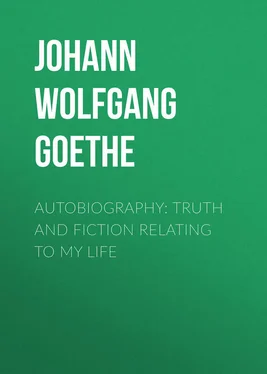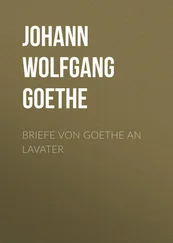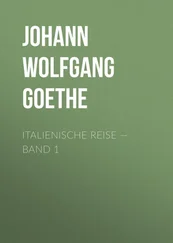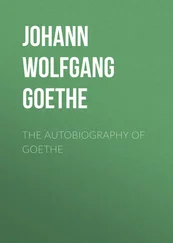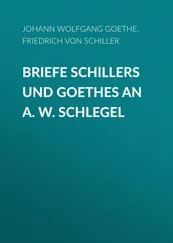Johann von Goethe - Autobiography - Truth and Fiction Relating to My Life
Здесь есть возможность читать онлайн «Johann von Goethe - Autobiography - Truth and Fiction Relating to My Life» — ознакомительный отрывок электронной книги совершенно бесплатно, а после прочтения отрывка купить полную версию. В некоторых случаях можно слушать аудио, скачать через торрент в формате fb2 и присутствует краткое содержание. Жанр: foreign_antique, foreign_prose, на английском языке. Описание произведения, (предисловие) а так же отзывы посетителей доступны на портале библиотеки ЛибКат.
- Название:Autobiography: Truth and Fiction Relating to My Life
- Автор:
- Жанр:
- Год:неизвестен
- ISBN:нет данных
- Рейтинг книги:5 / 5. Голосов: 1
-
Избранное:Добавить в избранное
- Отзывы:
-
Ваша оценка:
- 100
- 1
- 2
- 3
- 4
- 5
Autobiography: Truth and Fiction Relating to My Life: краткое содержание, описание и аннотация
Предлагаем к чтению аннотацию, описание, краткое содержание или предисловие (зависит от того, что написал сам автор книги «Autobiography: Truth and Fiction Relating to My Life»). Если вы не нашли необходимую информацию о книге — напишите в комментариях, мы постараемся отыскать её.
Autobiography: Truth and Fiction Relating to My Life — читать онлайн ознакомительный отрывок
Ниже представлен текст книги, разбитый по страницам. Система сохранения места последней прочитанной страницы, позволяет с удобством читать онлайн бесплатно книгу «Autobiography: Truth and Fiction Relating to My Life», без необходимости каждый раз заново искать на чём Вы остановились. Поставьте закладку, и сможете в любой момент перейти на страницу, на которой закончили чтение.
Интервал:
Закладка:
Goethe immediately afterwards began his Werther. Goethe tells us that it was written in four weeks. In October it spread over the whole of Germany. It was enthusiastically beloved or sternly condemned. It was printed, imitated, translated into every language of Europe. Götz and Werther formed the solid foundation of Goethe's fame. It is difficult to imagine that the same man can have produced both works, so different are they in matter and style. Götz was the first manly appeal to the chivalry of German spirit, which, caught up by other voices, sounded throughout the Fatherland like the call of a warder's trumpet, till it produced a national courage, founded on the recollection of an illustrious past, which overthrew the might of the conqueror at the moment when he seemed about to dominate the world. Werther, as soft and melodious as Plato, was the first revelation to the world of that marvelous style which, in the hands of a master, compels a language which is as rich as Greek to be also as musical.
The spring of 1773, which witnessed the publication of Götz, saw him actively employed as an advocate. In November, Goethe's sister Cornelia was married to Schlosser and left Strasburg. Goethe felt the loss deeply. She lived but a short time. Her married life was tortured with suffering, and she died in 1777.
The summer of 1774 was spent in a journey to the Rhine. Goethe returned to Frankfort at the beginning of August. On December 11, Goethe was surprised by the visit of a stranger. It was Karl Ludwig von Knebel, who was traveling with the two princes of Saxe-Weimar, the reigning duke, Karl August, then just seventeen, and his younger brother, Constantine. This meeting decided the future course of Goethe's life.
He now came under the influence of Lili Schönemann, the daughter of a rich banker. This passion seemed to be of a more lasting nature than the others.
Neither family approved of the engagement between the youthful couple.
Goethe tore himself away, and went for a tour in Switzerland.
He returned to Frankfort on July 20. August was spent delightfully with Lili at Offenbach; his letters speak of nothing but her. He wrote some scenes in Faust – the walk in the garden, the first conversation with Mephistopheles, the interview with the scholar, the scene in Auerbach's cellar. Egmont was also begun under the stimulus of the American Rebellion. A way of escaping from his embarrassments was unexpectedly opened to him. The duke of Weimar passed through Frankfort both before and after his marriage, which took place on October 3. He invited Goethe to stay at Weimar. It was not for his happiness or for Lili's that they should have married. She afterwards thanked him deeply for the firmness with which he overcame a temptation to which she would have yielded.
At this time the smaller German courts were beginning to take an interest in German literature. Before the Seven Years' War the whole of German culture had been French. Even now German writers found but scant acceptance at Berlin or Vienna. The princes of the smaller states surrounded themselves with literature and art. The duke of Brunswick had made Lessing his librarian. The duke of Würtemberg paid special attention to education; he promoted the views of Schubart, and founded the school in which Schiller was educated. Hanover offered a home to Zimmermann, and encouraged the development of Schlegel. Darmstadt was especially fortunate. Caroline, the wife of the landgrave, had surrounded herself with a literary circle, of which Merck was the moving spirit. She had collected and privately printed the odes of Klopstock, and her death in 1774 seemed to leave Darmstadt a desert. Her daughter, Louisa, seemed to have inherited something of her mother's qualities. She married, on October 3,1775, the young duke of Weimar, who was just of age. She was of the house of Brunswick, and after two years of marriage had been left a widow at nineteen, with two sons. She committed their education to Count Görz, a prominent character in the history of the time. She afterwards summoned Wieland to instruct the elder, and Knebel to instruct the younger.
Upon this society Goethe rose like a star. From the moment of his arrival he became the inseparable companion of the grand-duke. The first months at Weimar were spent in a wild round of pleasure. Goethe was treated as a guest. In the autumn, journeys, rides, shooting parties; in the winter, balls, masquerades, skating parties by torch-light, dancing at peasants' feasts, filled up their time. Evil reports flew about Germany. We may believe that no decencies were disregarded except the artificial restrictions of courtly etiquette. In the spring he had to decide whether he would go or stay. In April the duke gave him the little garden by the side of the Ilm. In June he invested him with the title, so important to Germans, of /Geheimlegationsrath/, with a seat and voice in the privy council and an income.
Goethe's life was at no time complete without the influence of a noble- hearted woman. This he found in Charlotte von Stein, a lady of the court, wife of the master of the horse.
The close of 1779 was occupied by a winter journey to Switzerland. Two days were spent at Frankfort with Goethe's parents. Sesenheim was visited, and left with satisfaction and contentment. At Strasburg they found as to Lessing. The repertoire of the Weimar theater was stocked with pieces of solid merit, which long held their place. In August, 1792, he accompanied the duke to the campaign in the Ardennes. In 1793 he went with his master to the siege of Mainz. Goethe took the old German epic of Reynard the Fox, with which he had long been familiar, and which, under the guise of animals, represents the conflicting passions of men, and rewrote it.
Thus far he had produced but little since his return from Italy. His friendship with Schiller was now to begin, an alliance which, in the closeness of its intimacy and its deep effect on the character of both friends, has scarcely a parallel in literary history. If Schiller was not at this time at the height of his reputation, he had written many of the works which have made his name famous. He was ten years younger than Goethe. The Räuber plays the same part in his literary history as Götz plays in that of Goethe. This had been followed by Fiesco and Kabale und Liebe. In 1787 he settled at Weimar. The first effect of Schiller's influence on Goethe was the completion of Wilhelm Meister's Apprenticeship. It stands in the first rank of Goethe's writings. A more solid result of the friendship between the poets was the production of Hermann und Dorothea.
The latter half of 1798 was occupied with a tour in Switzerland. Before its commencement he visited his mother at Frankfort for the last time, and presented to her his wife and his son. In the beginning of 1805 Goethe was convinced that either he or Schiller would die in that year. In January they were both seized with illness. Schiller was the first to recover, and, visiting Goethe in his sick room, fell on his neck and kissed him with intense emotion. On April 29 they saw each other for the last time. Schiller was on his way to the theater, whither Goethe was too ill to accompany him. They parted at the door of Schiller's house. Schiller died on the evening of the 9th of May. No one dared to tell Goethe the sad news, but he saw on the faces of those who surrounded him that Schiller must be very ill. On the morrow of Schiller's death, when his wife entered his room, he said, "Is it not true that Schiller was very ill yesterday?" She began to sob. He then cried, "He is dead!" "Thou hast spoken it thyself," she answered. Goethe turned aside and covered his weeping eyes with his hands. Since that time Schiller and Goethe have been inseparable in the minds of their countrymen.
On October 14, 1806, the battle of Jena was fought. The court had fled from Weimar. On the 15th Napoleon and Goethe met. It was at the congress of Erfurt, where the sovereigns and princes of Europe were assembled. Goethe's presence was commanded by the duke. He was invited to an audience on October 2. The emperor sat at a large round table eating his breakfast. He beckoned Goethe to approach him. He asked how old he was, expressed his wonder at the freshness of his appearance, said that he had read Werther through seven times, and made some acute remarks on the management of the plot. Then, after an interruption, he said that tragedy ought to be the school of kings and peoples; that there was no subject worthier of treatment than the death of Caesar, which Voltaire had treated insufficiently. A great poet would have given prominence to Caesar's plans for the regeneration of the world, and shown what a loss mankind had suffered by his murder.
Читать дальшеИнтервал:
Закладка:
Похожие книги на «Autobiography: Truth and Fiction Relating to My Life»
Представляем Вашему вниманию похожие книги на «Autobiography: Truth and Fiction Relating to My Life» списком для выбора. Мы отобрали схожую по названию и смыслу литературу в надежде предоставить читателям больше вариантов отыскать новые, интересные, ещё непрочитанные произведения.
Обсуждение, отзывы о книге «Autobiography: Truth and Fiction Relating to My Life» и просто собственные мнения читателей. Оставьте ваши комментарии, напишите, что Вы думаете о произведении, его смысле или главных героях. Укажите что конкретно понравилось, а что нет, и почему Вы так считаете.
